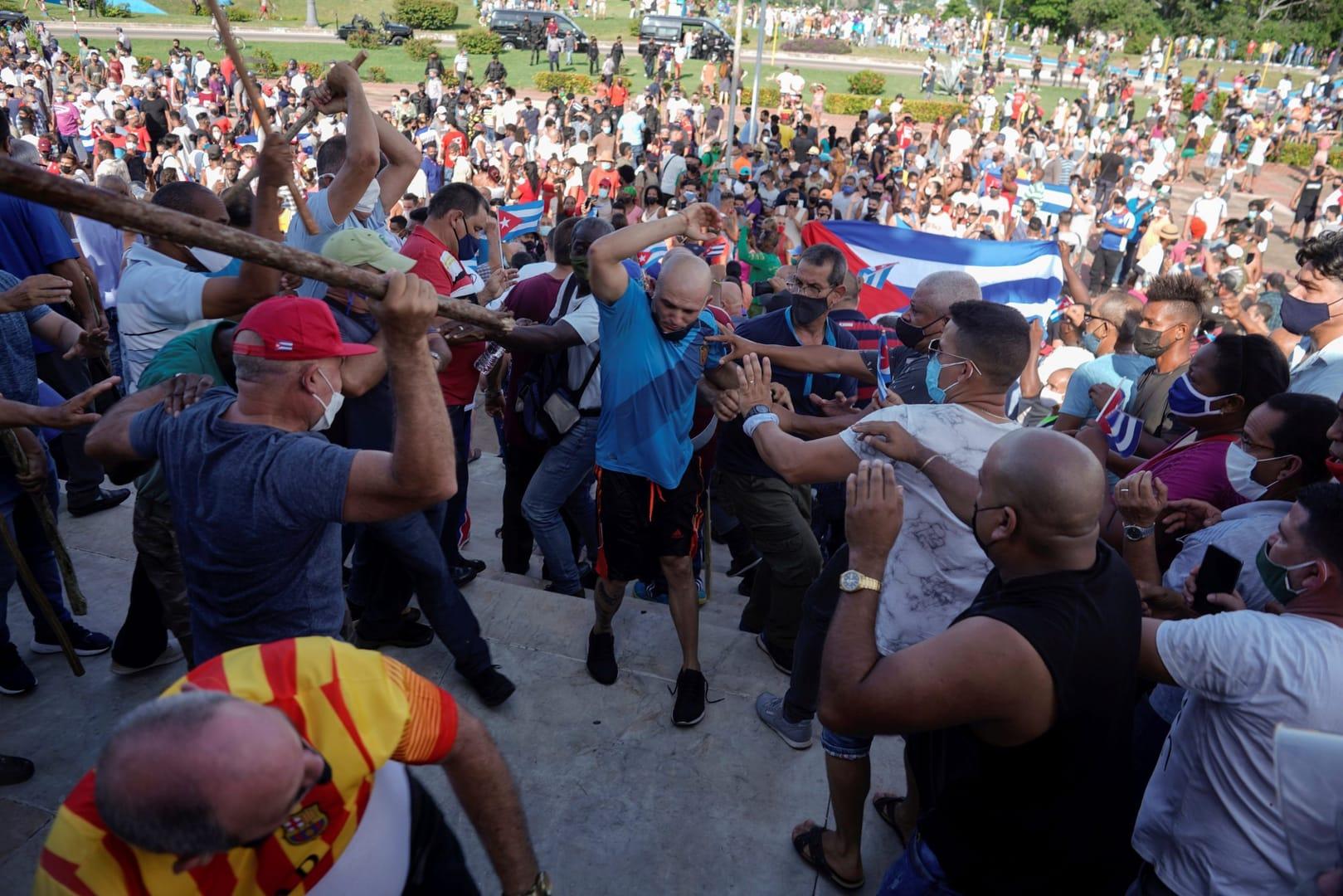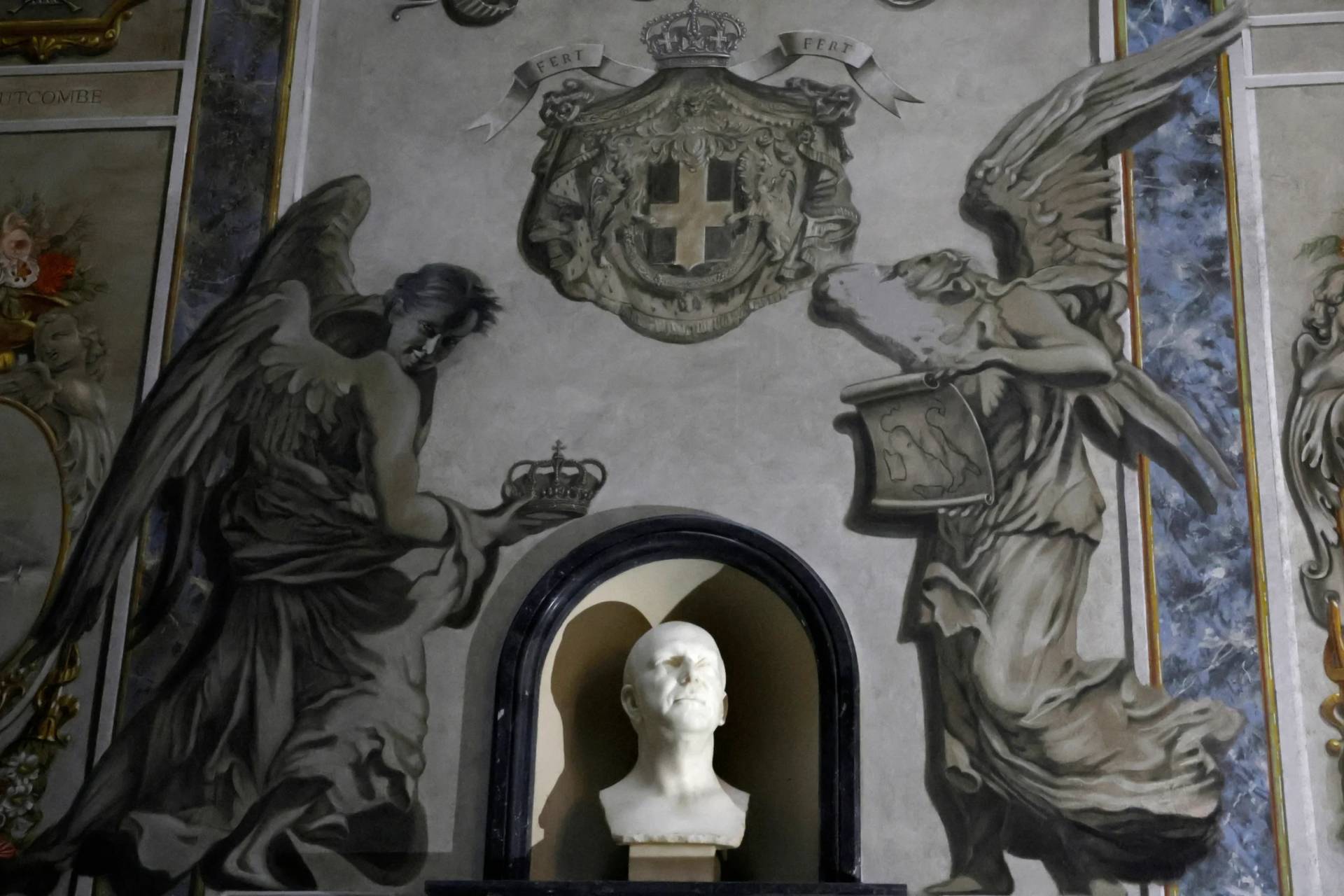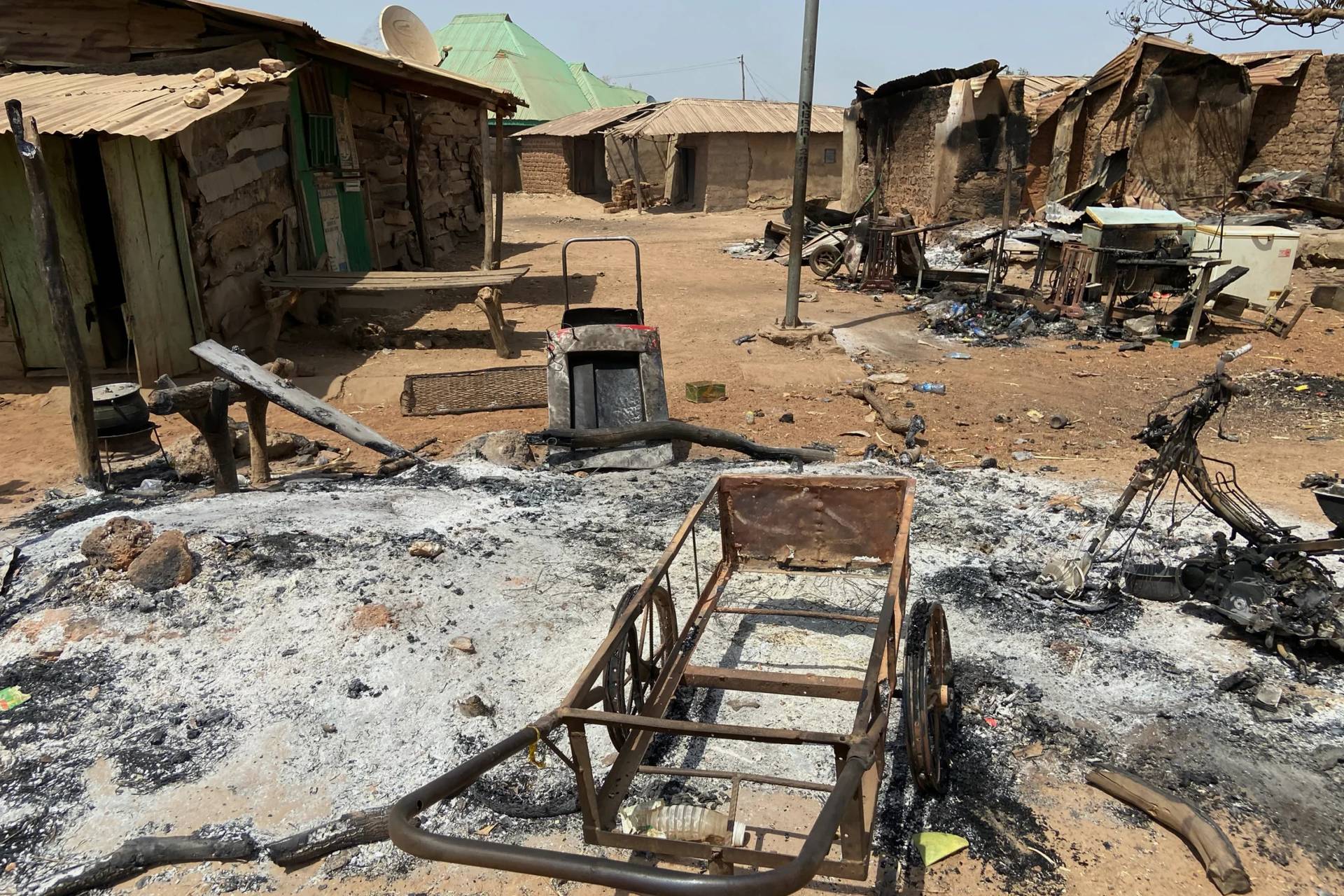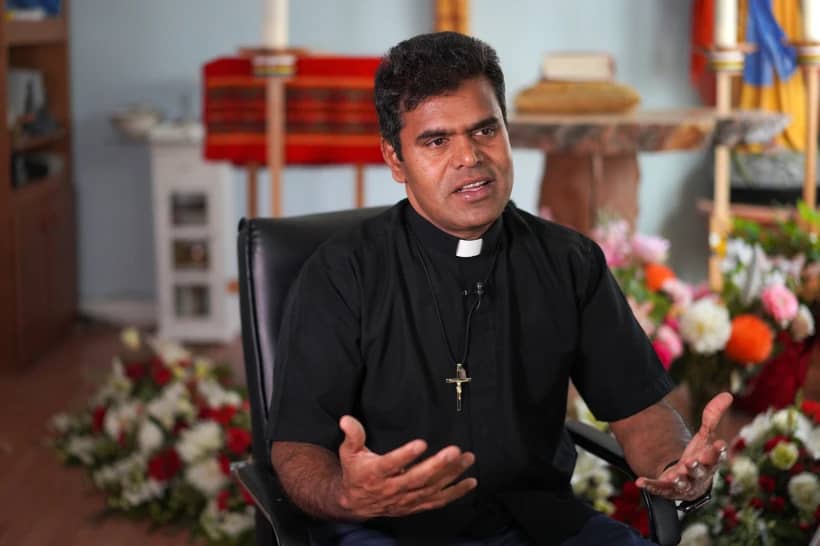WEST NEW YORK, N.J. — Bishop Manuel A. Cruz, a Cuban-American and an auxiliary of the Newark Archdiocese, told the congregation at a West New York Catholic church that “the hour has come to say ‘ENOUGH.'”
“Our people, the Cuban people, helpless as they are, are being massacred by the tyranny of the Cuban regime. Today we say ‘enough is enough’ to that genocide,” he said.
Cruz joined more than a dozen clergy from the Archdiocese of Newark and the Diocese of Paterson, New Jersey, along with the Cuban and Latino community, at St. Joseph of the Palisades Church for a July 18 prayer vigil in solidarity with the people of Cuba.
The service was for the brothers and sisters of the island of Cuba who continue to go through the trials and tribulations of their nation or, as one of the priests mentioned in his prayer, “for the people who cross their desert” to achieve above all the freedom that Jesus promised.
Cardinal Joseph W. Tobin of Newark presided. Also in attendance were Auxiliary Bishops Gregory J. Studerus and Michael A. Saporito of Newark and Bishop Kevin J. Sweeney of Paterson.
The Catholic leaders expressed their support for the Cuban people of the island, along with the Cuban diaspora found in the United States. They implored the island’s patron saint, La Virgen de la Caridad del Cobre (Our Lady of Charity), for an end to the suffering and cried for God to “save Cuba of tears and toil.”
Cardinal Tobin dedicated to Cuba the prayer Pope Francis offered that same day at the Vatican and added the story of the Nobel Peace Prize laureate, Bishop Desmond Tutu of Africa, recalling that the people of that continent, upon receiving the Bible from the hands of her colonizers also received the call to freedom.
Sweeney was emphatic in asking for peace for Cuba, remembering his Irish ancestors and their suffering. Studerus and Saporito joined their heartfelt messages with the words of their brother, Cruz, who raised his voice to ask that the suffering of his people stop.
“Our people, the Cuban people, helpless as they are, are being massacred by the tyranny of the Cuban regime,” Cruz said. “Today, we say ‘enough is enough’ to that genocide. We need to break the silence and be heard. In our hearts, there is a grief that cannot be spoken. There is a pain that goes on and on as we scream for freedom, and freedom does not yet come.”
He ended by reminding his beloved Cubans of the words from St. John of the Cross: “The soul that walks in love neither tires others nor grows tired.”
On July 11, thousands of Cubans in Havana and in 14 other Cuban cities took to the streets to protest economic hardships, lack of basic freedoms and the Cuban government’s handling of the coronavirus outbreak, making for what some have described as the most significant unrest in decades.
Their demonstrations were mirrored by a vocal street protest in Miami’s Little Havana neighborhood late afternoon July 11. Protests are ongoing in Cuba and in the U.S.
Since July 11, the Cuban government reportedly has responded by arresting people, including clergy, not only on the streets but also in their homes. There was at least one confirmed death after police shot a man taking part in the anti-government protest. The government also has restricted internet and phone services.
On July 20, The Wall Street Journal reported: “The whereabouts of hundreds of arrested demonstrators is unknown and others are being held incommunicado without charges nine days after nationwide demonstrations rocked the Caribbean nation.”
“More than a week after the unprecedented demonstrations, hundreds of people are lining up outside police stations across the island asking about missing relatives,” the newspaper said.
– – –
Guerrero writes for Jersey Catholic, the news website of the Archdiocese of Newark.













